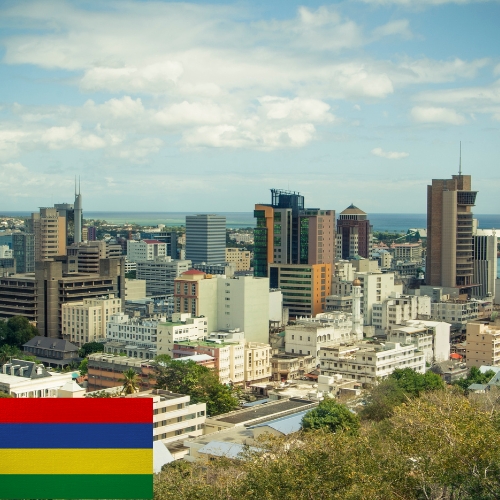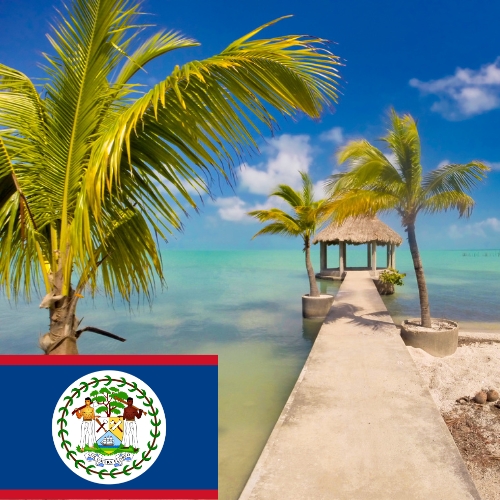Over 1,000 businesses partner with us for our company services. | Ready to register ? | Speak with our Experts |Over 1,000 businesses partner with us for our company services. | Ready to register ? | Speak with our Experts |
Table of Contents
Incorporation Details
Fee schedule
| Country | First year | Annual fee |
|---|---|---|
| Costa Rica (CR) | US$ 2,999 | US$ 2,690 |
*** To maintain good standing, your Costa Rica (CR) company must pay an annual renewal fee. This fee is a flat rate and free from hidden charges.
What’s included for 2999
● Incorporation of Company
● Costa Rica (CR) Government Registration Fees
● Registered Office for 1 year
● Registered Agent for 1 year
● Certificate of Incorporation
● Memorandum of Association
● Register of Members
● Membership Certificates
● Lifetime support
Why Costa Rica (CR)
Costa Rica is a top destination for business incorporation due to its favorable tax policies, political stability, and strategic location. Whether you’re an entrepreneur, investor, or digital nomad, here’s why Costa Rica is an attractive place to register a company.
Benefits of opening a company in Costa Rica (CR)
- . Limited Liability Protection
Shareholders (owners) are not personally liable for the company’s debts or obligations.
Their liability is limited to their investment in the company.
- Low Taxation & Business-Friendly Environment
- No Minimum Capital Requirement
- 100% Foreign Ownership Allowed
You do not need a local partner—foreigners can own 100% of the company.
- Ideal for Small & Medium Businesses
An S.R.L. is a great option for consulting firms, e-commerce businesses, tourism companies, and real estate ventures.Perfect for businesses that don’t need a public stock offering.
- Strong Privacy Protection
Owner names are not publicly listed, offering greater privacy.
The company structure allows confidential business operations.
Types of Business Entities in Costa Rica (CR)
Costa Rica offers several types of business structures, each suited for different business needs. Below is a breakdown of the most common types of companies you can register:
SOCIEDAD DE RESPONSABILIDAD LIMITADA (S.R.L.) – LIMITED LIABILITY COMPANY
Best for: Small & medium businesses, consulting firms, e-commerce, startups.
🔹 Key Features:
- Limited liability for owners (only responsible for their investment).
- Ownership is divided into quotas (not shares), making it harder to transfer.
- No board of directors required, only a manager (Gerente).
- More privacy – owner names are not publicly listed.
- Foreigners can own 100% of the company.
🔹 Tax Benefits:
- No tax on foreign-sourced income (if structured correctly).
- Lower corporate tax rates for small businesses.
SOCIEDAD ANÓNIMA (S.A.) – CORPORATION
✅ Best for: Larger businesses, companies seeking investors, public offerings.
🔹 Key Features:
- Divided into shares, making it easier to transfer ownership.
- Requires at least 2 shareholders and a board of directors.
- More administrative work (mandatory meetings, audits).
- Publicly listed shareholders, meaning less privacy than an S.R.L.
🔹 Tax Benefits:
- Same tax structure as an S.R.L., but better suited for larger-scale operations.
EMPRESA INDIVIDUAL DE RESPONSABILIDAD LIMITADA (E.I.R.L.) – SINGLE-PERSON LIMITED LIABILITY COMPANY
✅ Best for: Solopreneurs, freelancers, consultants.
🔹 Key Features:
One-person company – the owner has limited liability.
Cannot sell ownership or shares to others.
Simple to register and manage.
SOCIEDAD COLECTIVA – GENERAL PARTNERSHIP
✅ Best for: Small businesses with two or more partners.
🔹 Key Features:
- All partners share full liability (personal assets are at risk).
- Profits & losses are distributed based on the partnership agreement.
- No separation between personal and business finances.
SOCIEDAD EN COMANDITA – LIMITED PARTNERSHIP
✅ Best for: Investors & passive business partners.
🔹 Key Features:
- Has two types of partners:
- “Comanditados” (General Partners) – Have unlimited liability.
- “Comanditarios” (Limited Partners) – Liability limited to their investment.
- Good for businesses needing outside investors without giving them full control.
Incorporation Procedure
Documents from individuals:
- Certified Copy of a Passport
- Certified Copy of a Utility Bill e.g., Gas / Electrical or Bank Statement (dated within the last 3 months)
- 3 Proposed company name
- Completed Application Form (we will provide).
Documents from legal entities:
- Copy of the Certificate of Incorporation;
- Copies of incorporation documents (Articles of Association and Memorandum of Association).
- Register of directors/shareholders/members
Note: Where documents are in a language other than English, a certified translation of the full document into English must be provided, with the original document.
Company Structure
- Minimum Number of Directors: One, who may be a natural person or a corporate body.
- Minimum Number of Shareholders: One, which can be the same entity as the director.
- Beneficial Owners: While beneficial owners are not part of public records, you must provide this information to the Registered Agent who maintains confidentiality.
Timeline
Once we have received all the required identification documents, the company formation process will take approximately 15 working days subject to compliance review.
Taxation Policies
Country Reviews
Related Jurisdiction
Follow the right path with the right procedure
STEP 01
Select package and submit KYC documents
STEP 02
Sign application forms and do due diligence requirements
STEP 03
Submit the application and receive corporate documents
STEP 04
Annual registration renewal to keep business in good standing














Reviews
There are no reviews yet.